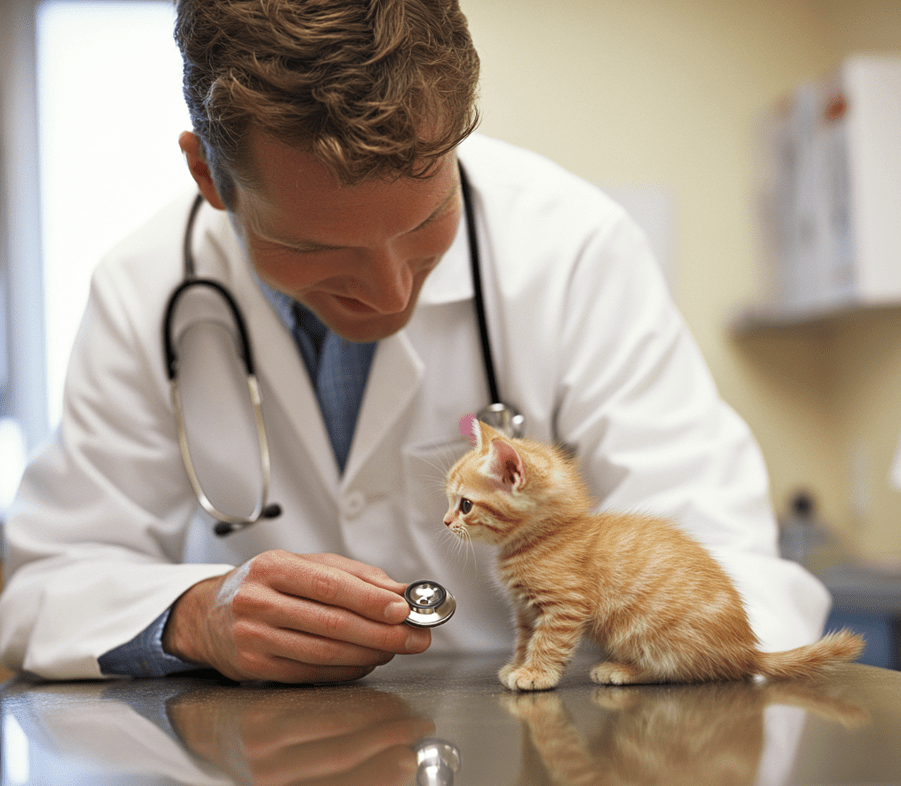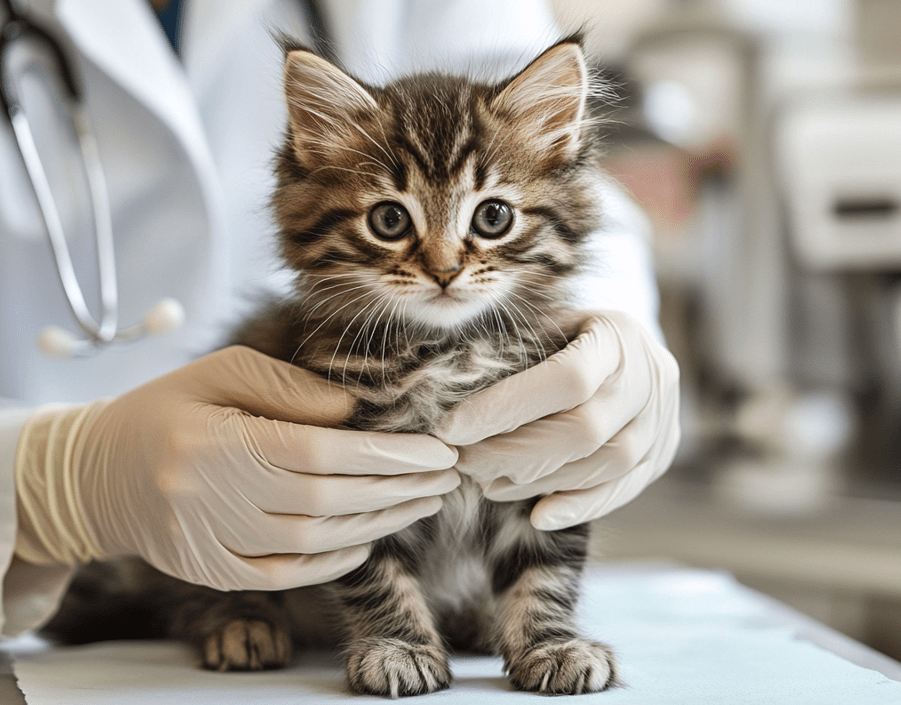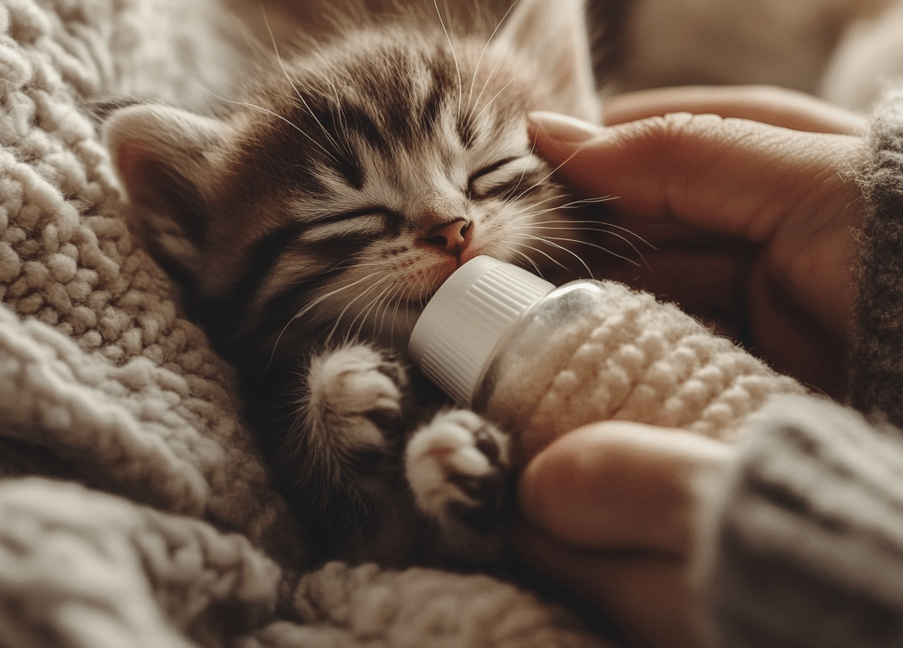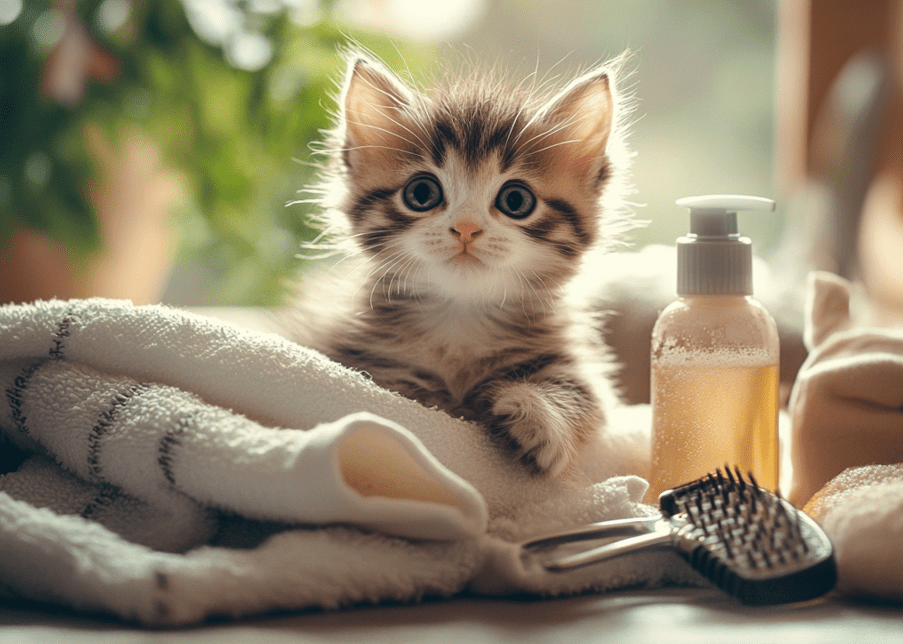
You must ensure that your kitten is always on a parasite control protocol. Because deworming is very important for kitten’s health development. Internal worms if an adult cat is generally healthy, it does not bother a lot because of internal worms, but can cause severe problems in young kittens such as delayed growth and other health issues.
This article will look into the reasons why it is a must to deworm your kittens, some red flags that you should be looking out for an infestation and also provide a vet-approved schedule so as to make sure your kitty grows well and is full of cheer.
When can you deworm a kitten?
Kittens are highly prone to internal parasitism. Deworming should start at around four to six weeks after birth when most kittens are weaned from their mother. Her milk is packed with antibodies that can help grant kitten’s natural immunity to rich parasites and such as when kittens get sick most of these illnesses are very common among them.
Kitten Deworming Schedule

Follow the deworming schedule of your kitten recommended by a veterinarian. Typically the process goes like this:
Deworm a kitten between 4-6 weeks of age
Deworm again at 8 weeks old
Repeat deworming at 12 weeks of age
Deworm every 4 weeks until 6 months old
Deworm every month to 3 months depending on a pet’s lifestyle
How Often Should You Deworm A Kitten?
Your vet will deworm your cat every 4 weeks until they are 6 months old, then between every 1-3 months (depending on whether the cat is more at risk of infection due to regular hunting or going stray outdoors). It is impossible to kill a worm in one stage of its life cycle; you can only kill them as they enter the lasting adult phase, and the best kittens’ deworming schedules aim to treat between 4-6 weeks.
During this period, the parasites grow from larvae to adults; they reproduce and then die traveling within the intestines as they mature. Take for example roundworms, who after a kitten ingests an egg it hatches in the feline’s GI tract; from there larvae travels through the lungs, liver and muscle tissues. These hatch in the environment and spend several weeks before returning back to the intestine where they mature into adults.
Because kitten deworming medication targets each life stage differently, one effective way to treat worms in kittens is to give a dosage every 4-6 weeks that will kill not only the larvae, but also the mature adults once the kittens no longer have their mother’s immunity.
And the deworming schedule should keep on till they reach six months, at which time preventative therapies may start. The answer is that all cats should ideally be given monthly parasite prevention, which not only controls fleas and roundworms but also kills hookworms, and heartworms in cats.
Should indoor cats be dewormed?
Whenever you have kittens, they all need to be on a regular deworming schedule. Indoor cats are still at risk for parasites but it is more common in outdoor felines.
This is especially important with fleas that can carry potential tapeworms as they can hitch a ride into the home on clothing, people, or other pets. Tapeworms can also be passed to indoor cats if they groom themselves, often from the infection of a flea that has been ingested. Mosquitos are also quickly able to fly into homes through the screen doors and windows from where mosquitoes can bite your cats transmitting feline heartworm disease.
How to deworm a kitten
Kitten deworming at the vet how much and how soon a kitten should be dewormed will be best answered by your vet.
What amount of dewormer for a kitten
Broad-spectrum formulas are available both over-the-counter (OTC) and prescription, however OTCs are highly discouraged. Consult your vet about finding the right product and dosage for your kitty.
How to deworm a kitten at home naturally?

While this might be true, you can deworm a cat naturally at home using remedies that include turmeric, and coconut oil. As each kitten’s deworming schedule is slightly different it is always best to first see a veterinarian for advice.
What Happens After You Deworm a Kitten?
Even after having dewormed your kitten, you may find she still has worms since normal deworming products can take 2-4 days to work. There are also occasions where a second dose is needed. They will be completely free of worms in 2–3 weeks after the dewormer has been given. Some types of worms require a second deworming a few weeks later due to the way that the medication acts on each stage of the life cycle.
Potential kitten deworming side-effects
Thankfully, deworming medications are incredibly safe and side effects from them are so amazingly rare at appropriate dosages. But your cat might have diarrhea, vomiting, increased salivation, or decreased appetite. The side effects occur within 24 hours of giving the medication and should clear up on their own.
How long does it take for a dewormer to work with kittens?
Eggs and larvae can be killed only after multiple rounds of deworming medication. The performance is obviously parasite-dependent, and the effectiveness significantly varies between different stages of infection in addition to infections with larger numbers of parasites.
Checking for Parasites in Your Kitten
The presence of worms in kittens may present few symptoms although the most common signs are diarrhea with blood, vomiting, weight loss and not wanting to eat. You may also see worms in your kittens’ vomit or stool. Adult cats, in particular, may have no symptoms of a worm infestation.
Even if you are able to see the parasites in pet poop, be sure to adhere to the kitten deworming schedule. They are hardy creatures and can live for a long time, even in needering environmental surroundings.
Is Kitten Dewormer effective for parasite prevention?
The best kitten deworming product is all that will cure active disease. Avoid future infestations by using a monthly heartworm, tick, flea and ear mite preventative in cats.

Kitten Dewormer Cost
Fecal worm test costs range between $30 and $130, depending on the country you live in. Later, if your veterinarian determines that your kitty has worms in her tummy, you will have even more deworming medication to purchase. If the dewormer is given based on mg/kg, it might cost as least 15 dollars per initial dose depending on your dewormer.
And please remember: You will almost certainly need to have your kitty rechecked in a few weeks (probably with another fecal examination) to see if all the worms are gone, meaning you may fork over some cash for lab testing and another office visit depending on what your vet says.
Natural Kitten Deworming
When it comes to deworming your kitten, you should never try at home! You will need to have this diagnosed by a vet so that you know whether your kitten has worms, and if they do what kind of parasite it is. If you do not know this information, you cannot choose the right medication to deworm your puppy at home.
What will happen if you wait to deworm your kitten?
Intestinal blockage– Kittens can have so many worms that they cannot pass through the GI tract, and that can cause intestinal blockage. The cost of surgery to save your cat from an intestinal blockage can range in price depending on where you live and how extreme your cat’s situation is, but it most likely won’t be cheap — anywhere from $800 – $6,000+ If not treated promptly, uncontrolled worm infestation can also cause retardation of growth and development. The majority of transmission occurs in the sandbox in which children play, contaminated by cat feces.
Included in this list is chemotherapy, dialysis, fecal flotation and deworming which pet insurance can help pay for. Most pet insurance providers provide wellness plans for your kitten, which covers nearly all its preventative medication. We can help you review and compare plans and wellness add-ons by different providers with our pet insurance comparison to find the right coverage for your cat.




